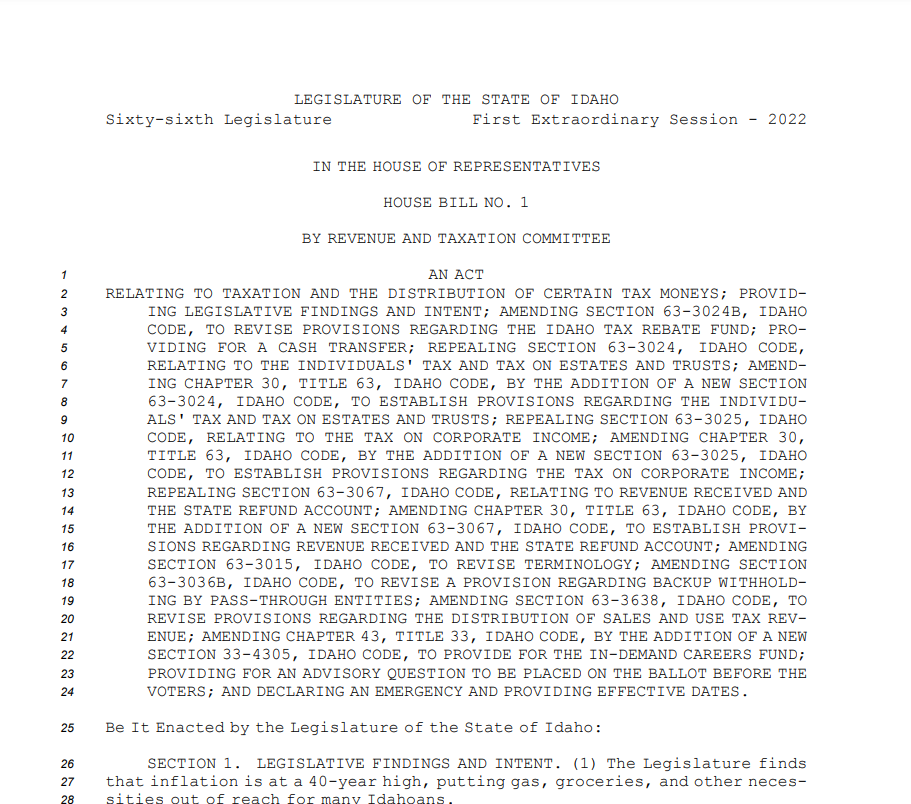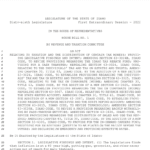Idaho Renters Rebate 2025 – You can be qualified for a renter’s refund if you own a rental property in Idaho. If you want to be eligible for the reimbursement, you must adhere to a few restrictions. In this post, we’ll go through how to become eligible for the refund.
obligations for landlords
In order to comply with state legislation, landlords in Idaho are required to adhere to a number of rules and regulations. Landlords are obligated to follow the Idaho Code even though there are no explicit regulations in Idaho that deal with security deposits.
Landlords must respect the Idaho Code and should be aware of the kind of renter they are hiring. They should only accept those who can afford the rent, specifically.
You must have at least two years of rental history in order to apply for a rental property. You must provide both the current and former landlords’ contact information.
You should offer at least 30 days’ notice if you intend to rent to a tenant who is subject to eviction. The tenant has plenty of time to look for a new place to reside because of this.
Make sure you have the ability to promptly return the security deposit if you intend to charge one. To pay for repairs or damages, you might be allowed to deduct a portion of the deposit.
Qualification for the discounts
You qualify for the Idaho Renters Rebate 2025 if you resided in Idaho for the whole calendar year of 2020 and submitted your income tax return before the end of 2021. This is a one-time $75 per family rebate and a 12% state tax refund.
The program also provides participants with a $300 extra rebate. You must be 65 years of age or older, married, file your taxes jointly, and make less than $35,000 per year to be eligible. You also need to reside in a household where paying property taxes accounts for more than 15% of your income.
On myPATH, you may view the status of your rebate application. This webpage is accessible every day of the year. It enables you to check your rebate’s specifics and determine when it will be issued. To utilize the website, applicants will need a working email account. There are various forms that must be completed, and you may also need to fulfill other requirements.
Idaho’s rules and regulations for renting
There are a few key lease requirements and regulations that you must to be conscious of if you’re trying to rent property in Idaho. These guidelines make sure that you are safeguarded in the event that you and your landlord have a disagreement.
In Idaho, landlords are permitted to request a security deposit from a renter. This can be used to pay for any damages that may have occurred throughout the lease. However, the amount of the deposit is uncapped by law.
In Idaho, landlords must also provide adequate notice to renters before terminating a contract. The day the renter is requested to sign the lease marks the start of the 30-day notification period. It can’t go over 30 days.
Landlords in Idaho must give the appropriate notice and may not remove a tenant on discriminatory grounds. Additionally, they are not permitted to turn off the utilities or lock a renter out of their apartment.
making a claim of discrimination in housing
You should understand how to report housing discrimination if you are a renter or landlord in Idaho. It is crucial to be aware that landlords are not permitted to discriminate against renters on the basis of their race, religion, familial position, or physical or mental disability.
People are shielded from housing discrimination under the federal Fair Housing Act. Additionally, you may complain to your neighborhood NAACP or HUD.
You must do your homework on the rental home and the landlord before signing a lease. Make sure to investigate the state judiciary’s reputation for the landlord.
Additionally, you can utilize your security deposit to pay for repairs or cleaning expenses. If you follow the regulations, you can get your security deposit returned at the conclusion of your lease.
The connection between a owner and a tenant is governed by several laws. There are various laws in each state. There can be extra safeguards in the form of ordinances in addition to these.
Download Idaho Renters Rebate 2025

